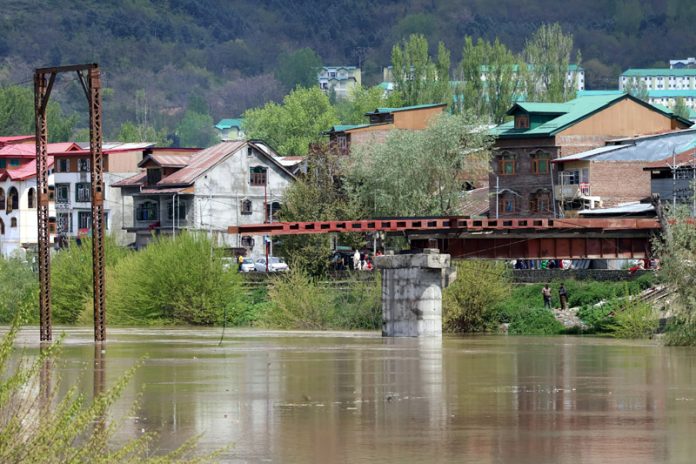Suhail Bhat
Srinagar, Apr 16: The boat capsizing tragedy, in which nearly six people died in the Gandabal area on the outskirts of Srinagar, allegedly occurred due to the unfinished bridge persisting for over a decade, which compelled the victims to risk their lives by boarding a boat to cross the swollen Jhelum River.
Locals point to the incomplete bridge as the primary cause of the capsizing, not only depriving them of a vital connection but also directly leading to the boat’s sinking. Upon detachment from the supporting rope, the boat collided with one of the bridge’s pillars, resulting in the loss of six lives and leaving three others missing.
As news of the boat capsizing reverberated through the Valley, a wave of shock swept across the region. Heart-wrenching scenes unfolded as women mourned the loss of their loved ones in the tragic accident. Amid this grief, fingers pointed at the government for delaying bridge construction without clear justification.
Shakir Naik, a local resident, squarely blames the administration for the tragedy, emphasizing that the timely completion of essential infrastructure could have prevented the loss of lives. “Several people, including our children, who boarded the boat to cross the Jhelum drowned after their boat capsized,” he said. He added that this tragedy would not have happened if the administration had completed the bridge on time.
Another resident, Ghulam Mohidin, recounts fifteen years of struggles caused by the lack of a bridge, affecting access to basic necessities and vital services like healthcare and education. “The people responsible for the construction of the bridge should be held publicly accountable. We no longer need anything and request the administration dismantle the under-construction structure, he said.
He added that while the administration is decorating bridges like Nowakadal and Zero-Bridge, essential bridges like this one, crucial for people’s commute, remain incomplete. “The lives of the people should be the priority, not mere show-offs,” he emphasized.
In the wake of this tragedy, communities in similar situations demand the swift completion of pending bridge projects. For instance, the Sampora bridge, initiated in 2017 with an estimated cost of Rs 13.30 crores, remains only half-complete, leading to prolonged hardships for locals. Similarly, the footbridge in Panthachowk faces disruptions, exacerbating daily challenges for residents.
The looming fear of similar incidents underscores the urgency of addressing incomplete infrastructure projects. Gulzar Ahmad, echoing the sentiments of many, expresses concern over the Sampora bridge’s prolonged halt, hoping to avert another tragedy.
“The Sampora Bridge has been on halt for a very long period of time, and God forbid, we are waiting for the same tragedy to happen. We suffer a lot on a daily basis as we don’t have any other roads connecting us directly to the National Highway,” said Ahmad.


